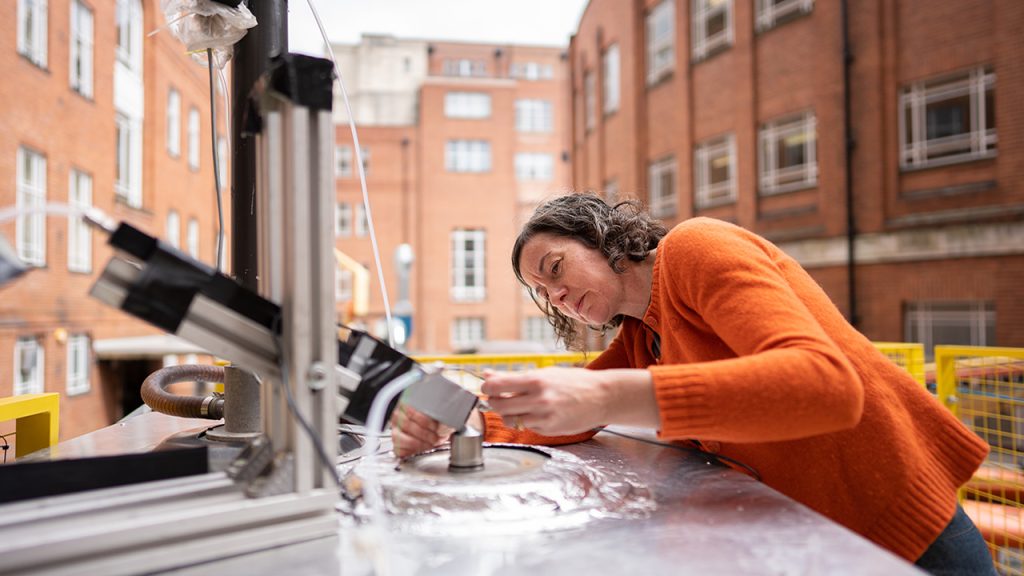
Diversity data in 2024
We recognise that our organisation benefits from the different perspectives of our staff. To help us nurture a more inclusive science community, we have asked people working across the National Centre for Atmospheric Science (NCAS) to tell us about themselves.
This year, 100 staff took part in an anonymous Equality, Diversity and Inclusion survey. The survey tracks different types of diversity, as well as culture change across the organisation. We are thankful for their contribution to our equality and inclusion work.
We hope that by collecting and sharing our diversity information, we can make fair and transparent decisions to improve from where we are now.
In this section you will find diversity monitoring information about NCAS colleagues, broken down by: gender, ages, ethnicity, country of birth, disability, sexual orientation, mental health, neurodivergence, religion or belief, socioeconomic status, caring responsibilities and working hours.
Gender
When asked “What gender do you identify as?”, 52% of respondents said man, 40% said woman, 1% said gender-queer, and 7% preferred not to say.
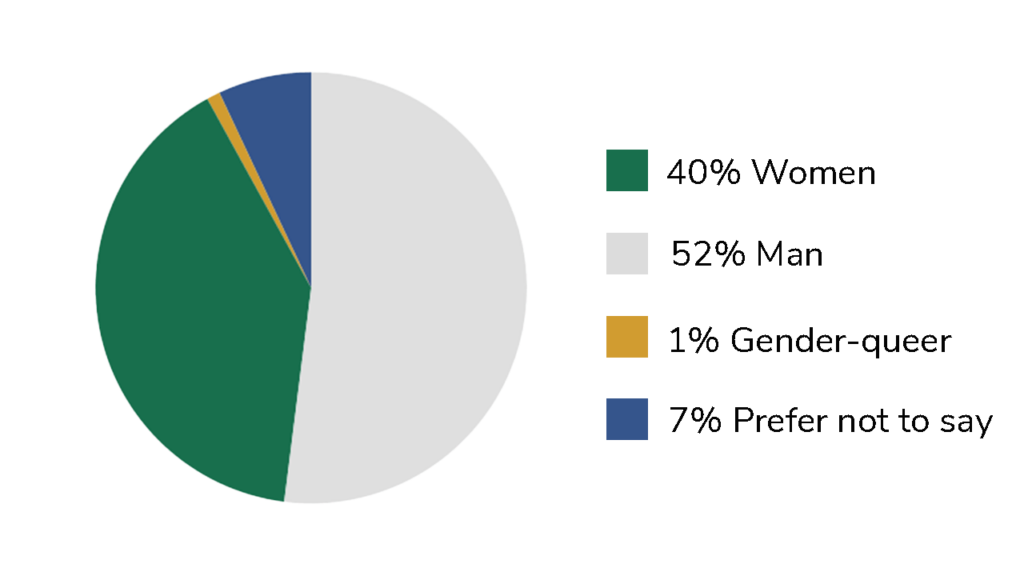
Age
When asked about their age, we found out that 6% of respondents are 25 years old and under, 23% are 26-35 years old, 23% are 36-45 years olds, 28% are 46-55 years old, and 14% are 56 years old and over. 5% preferred not to say their age.
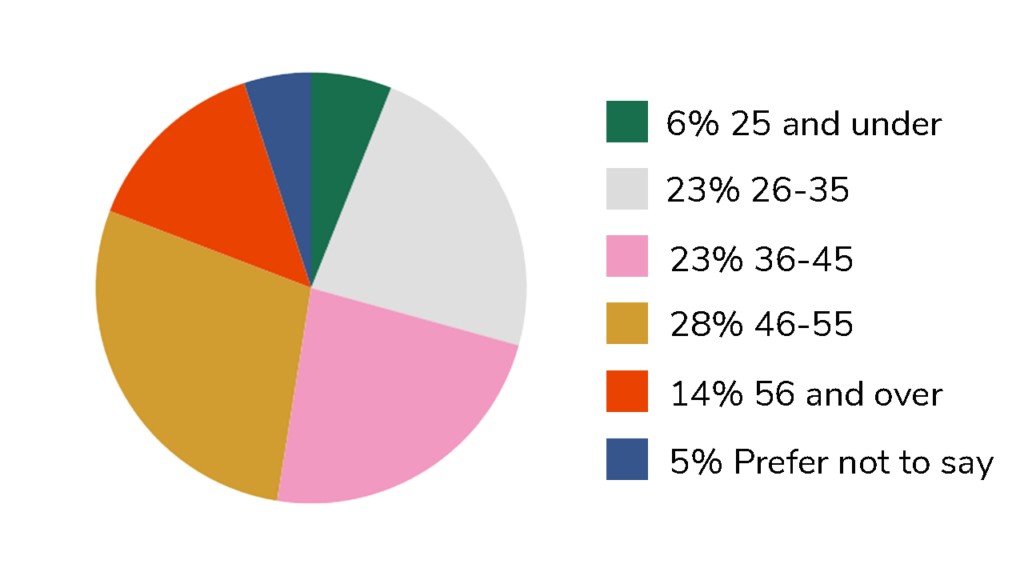
Ethnicity
GOV.UK reports that 80.7% of the UK working age population is white. We asked our staff: “Do you consider yourself to be from a minority, cultural, or ethnic group?” and 84% said no, 14% said yes, and 2% preferred not to say.
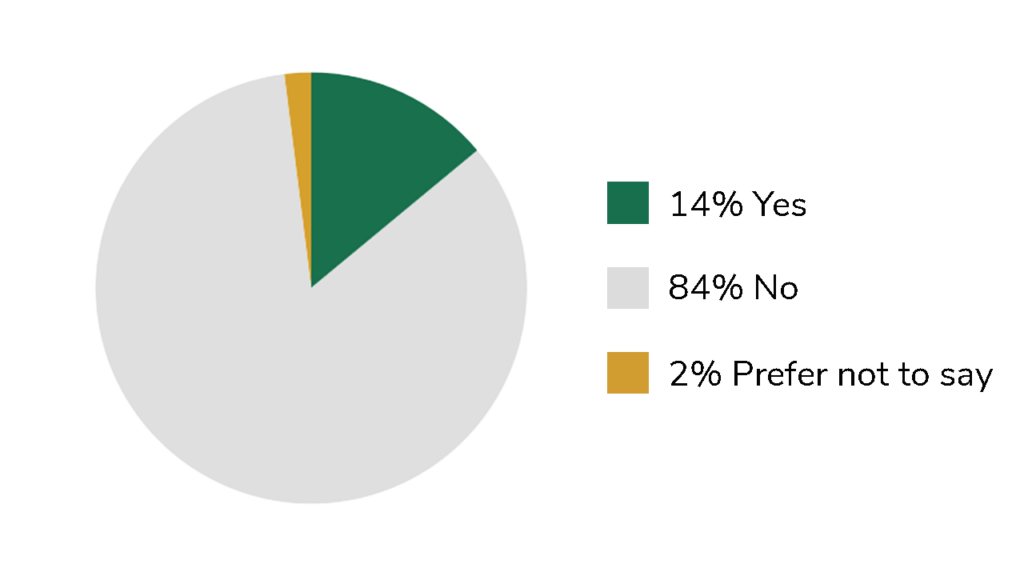
County of birth
We asked staff if they were born in the country where they now live and work. 73% said yes, 26% said no, and 1% preferred not to say.
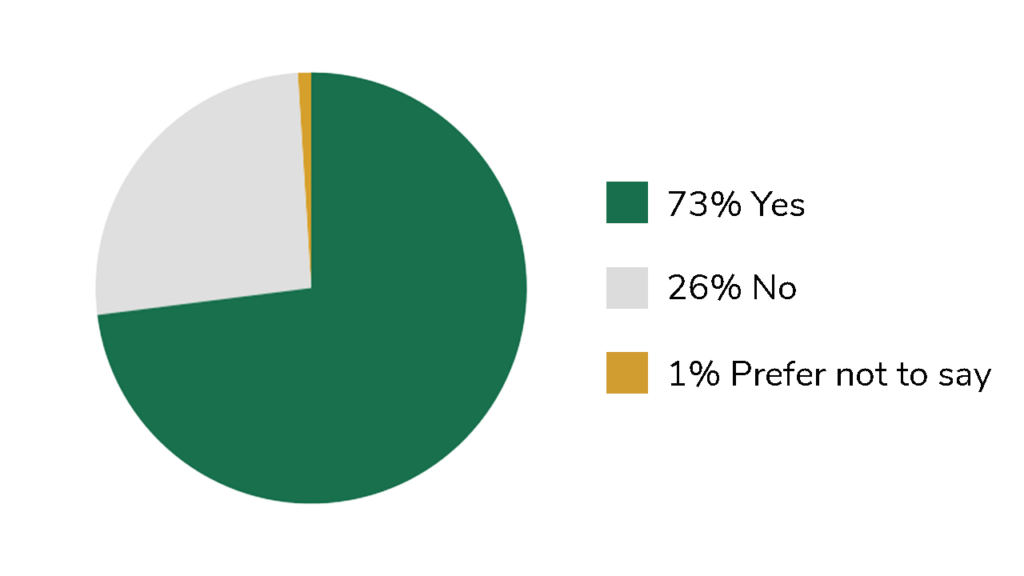
Disability
7% of people completing our survey said they consider themselves to have a disability. 90% said they didn’t, and 3% preferred not to say. According to the UK Parliament, 24% of the working age population reported living with a disability in 2023.
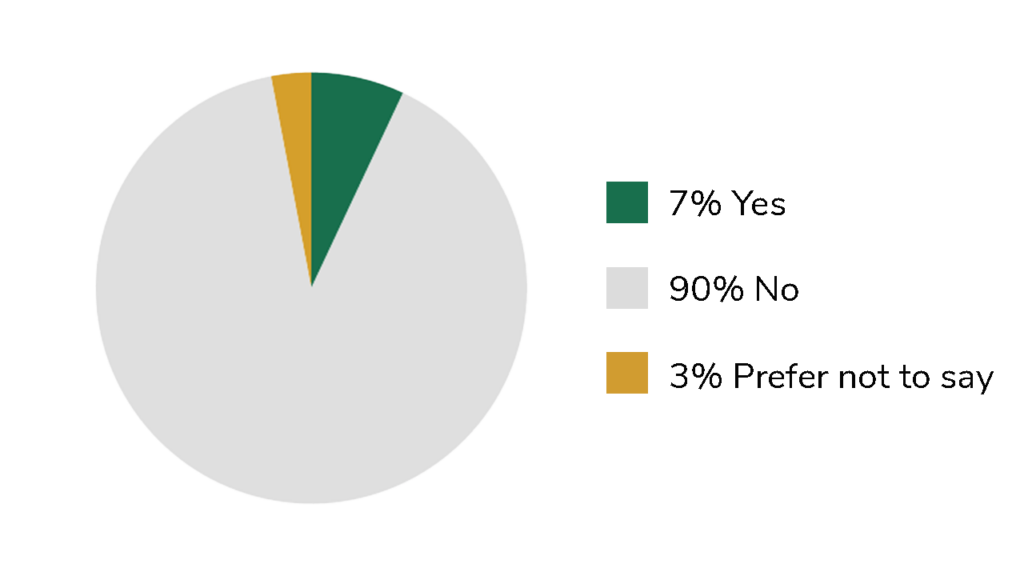
Sexual orientation
In 2021, the Office for National Statistics found that 3.2% of the UK population aged 16 years and over identified as lesbian, gay, bisexual or other sexual orientation. We asked our staff if they identify as gay, lesbian, bisexual, pansexual, queer or asexual. 14% said yes, 78% said no, and 8% preferred not to say.

Mental health
We wanted to know if our staff consider themselves to currently have, or if they had ever experienced, mental health issues: 32% said yes, 56% said no, and 12% said they preferred not to say.
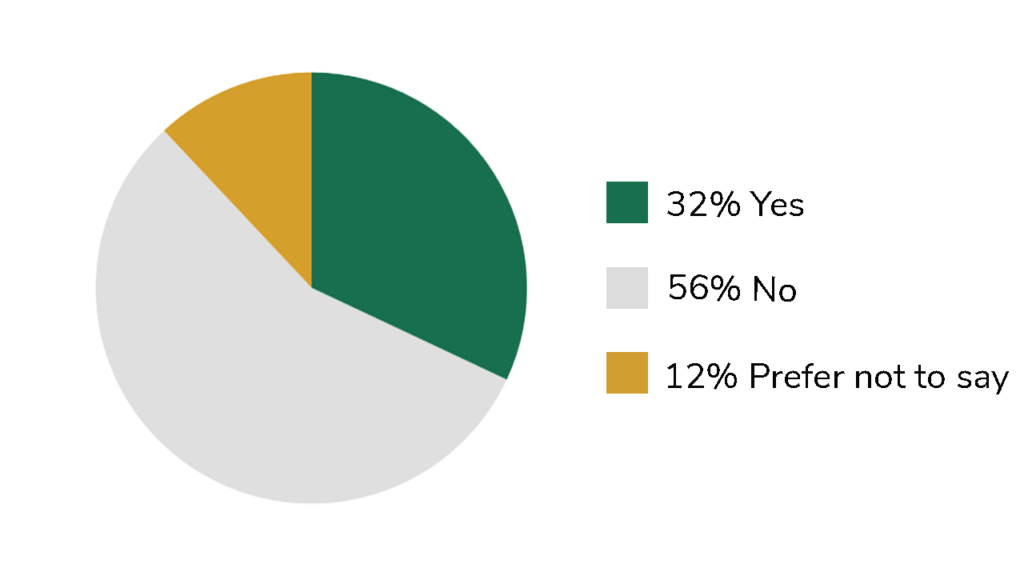
Neurodivergence
We asked our staff whether they considered themselves or have ever considered themselves to be neurodivergent. 12% of respondents said yes, 72% said no, 7% said they preferred not to say, and 9% did not know.
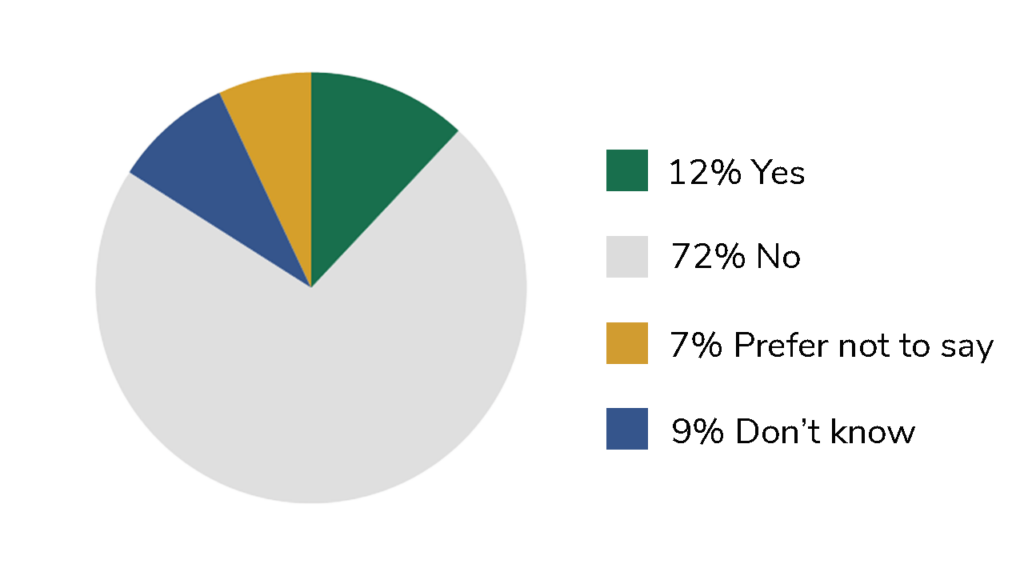
Religion or belief
When we asked our staff, “Do you have a religion / belief that is important to you?”. 19% of the survey respondents said yes, 73% said no, and 8% preferred not to say.
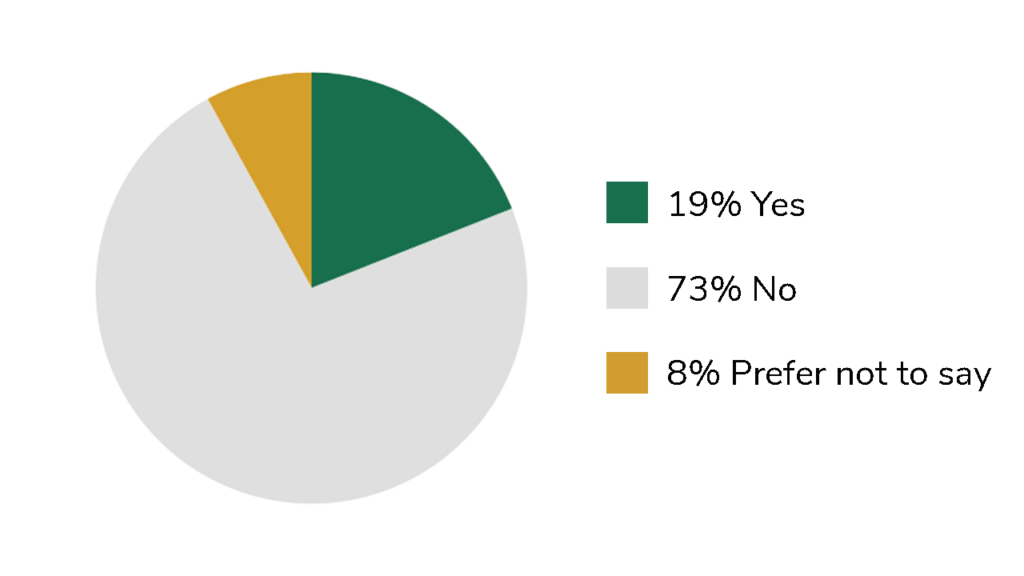
Socioeconomic status
Socioeconomic status is a measure of an individual or family’s income and social position in relation to others based on income, education and occupation. We asked staff if at the age of 14 if they considered themselves to be in a low socioeconomic position. 19% said yes, 71% answered no, 3% preferred not to say, and 7% said they didn’t know.
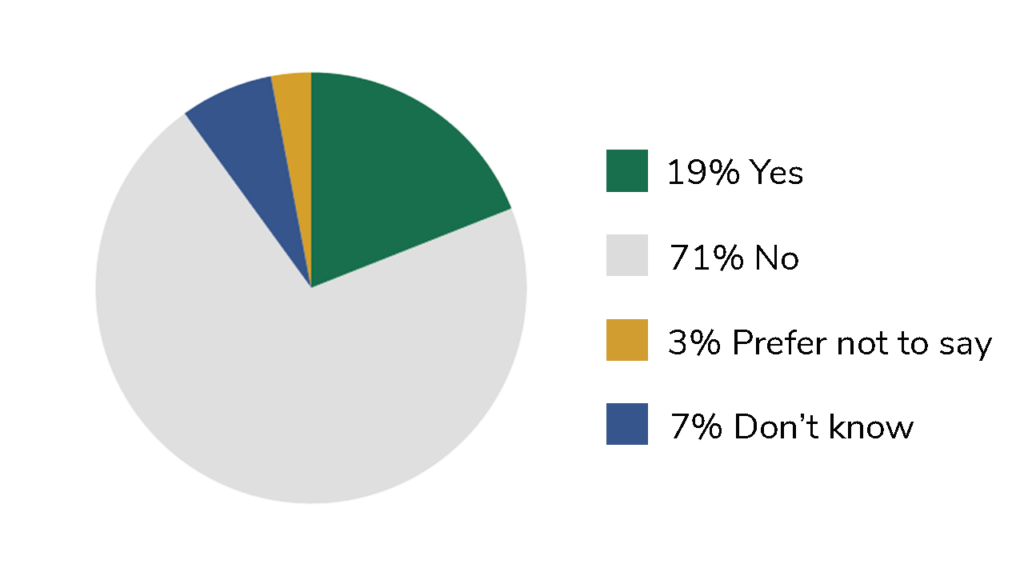
Caring responsibilities
We also wanted to find out if our staff had any caring responsibilities. 46% said no, and 2% preferred not to say. 54% replied yes, of which 30% had responsibilities for people aged 18 and over.
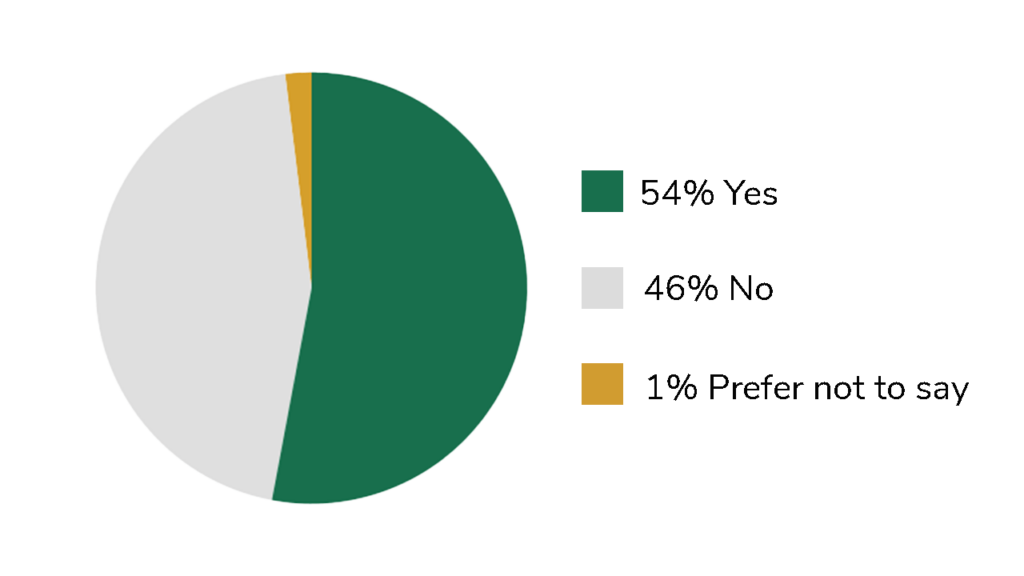
Working hours
We asked staff to describe their usual working hours and working patterns. 82% of respondents said they work full time, and 18% said they work part time. 35% said their working patterns were variable, and 65% said their working pattern was the same every week.
Making plans to improve
What does our diversity information tell us in 2024?
- We have seen an increase in some reporting of protected characteristics amongst respondents, which we welcome across the organisation. Our staff feeling able to share their identities openly is the first step in tackling issues and barriers to inclusion.
- We need to understand people’s differences, and seek to minimise or remove barriers to inclusion where possible.
- We still have work to do in regards to inclusive recruitment, and equal access to promotions and staff development. We are currently developing an Inclusive Recruitment Commitment to support future candidates and our staff. We also launched an Institutional Promotions Guide this year to improve knowledge around promotions at their host institutions.
- We need to highlight and reassure our staff of the importance of the Equality, Diversity and Inclusion survey. The more NCAS colleagues who complete this survey, the better our data collection will be as an organisation, and therefore, we will be able to provide better support and improvements for all our staff.
Our diversity data will continue to inform our ongoing actions from the NCAS Equality Diversity and Inclusion (EDI) Living Action Plan, and support us in the development of the next EDI staff survey in 2026.
Have a question, suggestion, or concern? Please contact Lisa Banton, our Head of People, EDI & Workforce Development.
